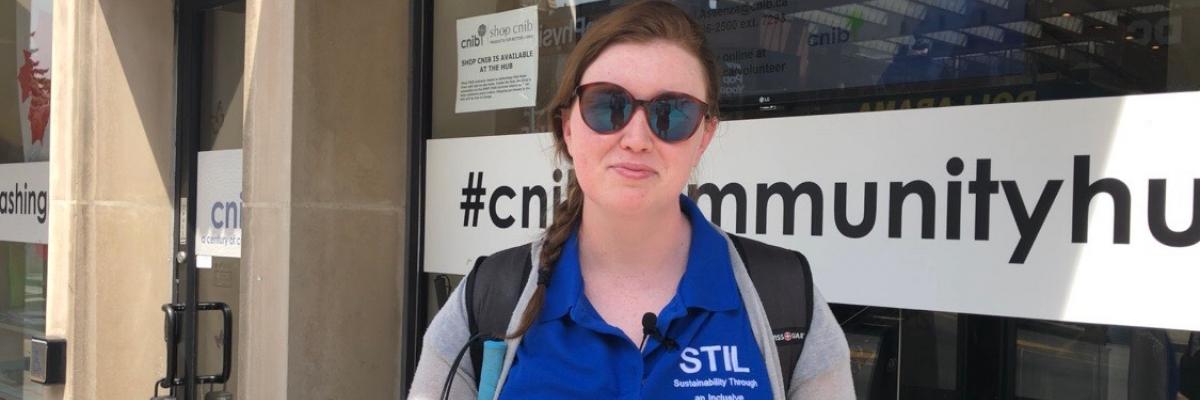Have you ever wanted to open your own store or sell homemade products, create your own hours and schedule gigs for yourself? You might be a future entrepreneur.
It's easy to picture self-employed people as those who own big businesses and know all the secrets to success. An entrepreneur has a bigger definition. He or she can be anyone who works for themselves, whether they're a professional speaker, a tutor, an app creator, or a DJ. The possibilities are endless.
You don't need to know everything about business to get started, just have an idea and the determination to create it. Explore the Resources section for tips and tutorials, or to find inspiring stories from other blind and partially sighted entrepreneurs. Some basic business terms below will help you get started.
What do all these business terms mean?
Customers
Target audience: Who you hope to reach with your business. Consider their demographics and psychographics.
Demographics: Age, gender, location, marital status, income level and education level are all important factors.
Psychographics: Factors such as how the target audience feels about things and how they think. Used in consideration of target audience and marketing methods.
Sales channel: How you sell: online, in store, or at trade shows.
Seasonality: Factors that can affect sales. Some goods and services are popular at certain times, like hot chocolate and Christmas trees in winter, or flowers and ice cream in summer.
Competition
Direct competitors: Businesses who sell the same product as you.
Indirect competitors: Companies that offer a product in the same category as you, but don't necessarily sell the same thing. For example, if you're a DJ, your competitor might be a music-streaming service.
Finances
Cashflow statement: Measures how much money is going out vs. how much is coming in to your business.
Balance Sheet: Measures your assets versus liabilities. To be successful, assets should be higher than liabilities.
Assets: The things that make you money, including funds in the bank that earn interest and things you own like real estate, investments and intellectual property, such as software, patents, songs or scripts.
Liabilities: things that cost you money, such as rent, your phone bill, or vehicle upkeep.
Top line: The gross revenue you make from all sales.
Bottom line: Profit, or the money left after expenses.
Angel investors: People and groups who invest large amounts of money in businesses.
Venture capital: Investors that write a sizeable cheque for entrepreneurs who have been successful and active for a while and need cash to grow.
Scales of Businesses
Small business: Small scale, often local businesses like family owned shops or chef-owned restaurants.
Medium business: A mid-range business that often has multiple locations but is usually owned privately. For example, a small chain of sporting goods stores that's only in one city.
Enterprise: Big, usually publicly traded businesses with large workforces across a continent.
Market Types
Business to business: Companies that sell to other businesses, like raw material suppliers for manufacturing.
Business to consumer: Sells directly to consumers.
Business to government: Sells to the government at all levels.
Marketplace/two-way business: Hosting a public marketplace, but not selling directly to businesses or consumers, like Amazon marketplace, Kijiji, and eBay.
